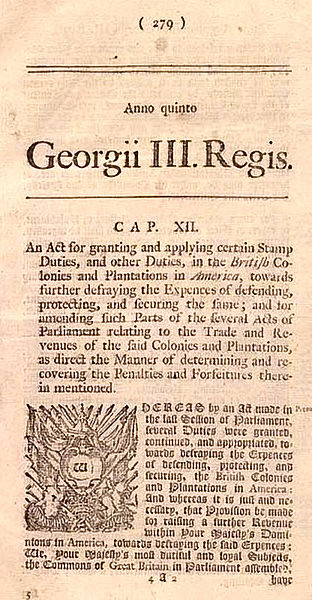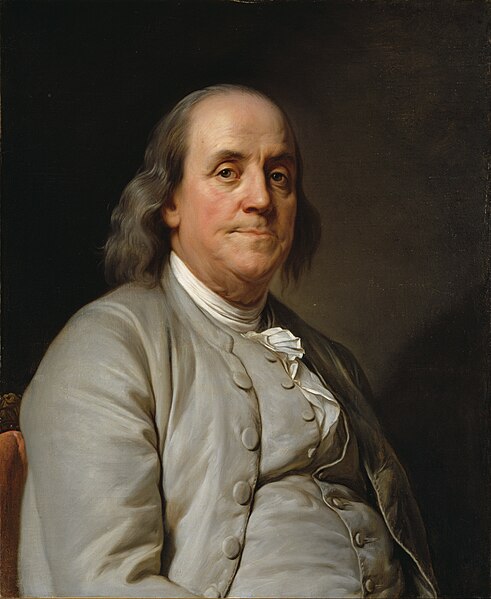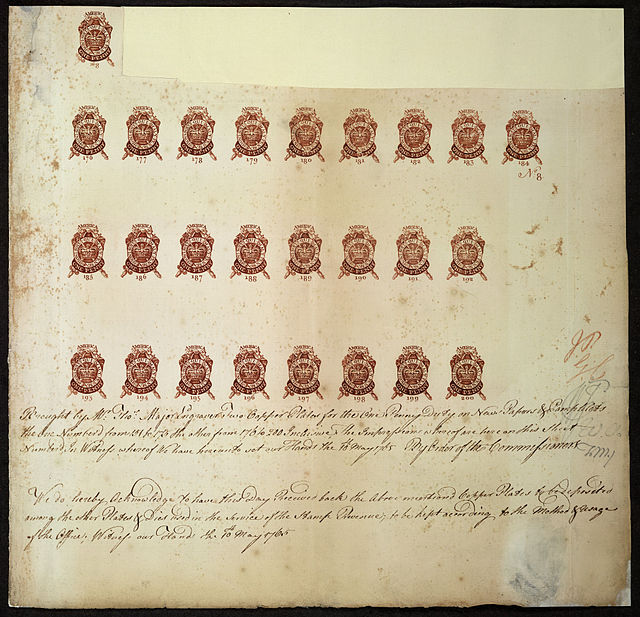The Stamp Act 1765, also known as the Duties in American Colonies Act 1765, was an Act of the Parliament of Great Britain which imposed a direct tax on the British colonies in America and required that many printed materials in the colonies be produced on stamped paper from London which included an embossed revenue stamp. Printed materials included legal documents, magazines, playing cards, newspapers, and many other types of paper used throughout the colonies, and it had to be paid in British currency, not in colonial paper money.
Stamp Act 1765
Printed copy of the Stamp Act of 1765
Benjamin Franklin represented Pennsylvania in discussions about the act.
A proof sheet of one penny stamps submitted for approval to the Commissioners of Stamps by their engraver on May 10, 1765
Stamped paper is an often-foolscap piece of paper which bears an imprinted revenue stamp. Stamped papers are not a form of postal stationery as although they may contain writing, they are not designed to be used to convey a message.
A used Indian 12 Anna stamped paper written in Bengali dated 1938 (top 90% only shown)
Top portion of a stamp paper(used) showing king george VI
A stamped paper of Alipura State in India
A 1934 stamped paper from Sangli State in India








